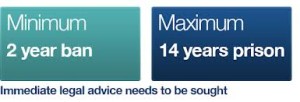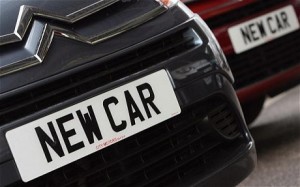More helpful hints and tips for after you have passed your Driving Test in Newcastle.
Would you park on a stranger’s drive?
When it comes to neighbour disputes over parking, blocked driveways are the biggest gripe.
Parking outside a neighbour’s house or using their space without asking came a close second!
But some drivers take even more extreme measures if they can’t park quickly when they’re out.
‘We found strangers parked on our drive’
A couple who live near a hospital have often come out of their house to find complete strangers parked in their driveway.
“At its worst we found people parked there about once a week!
“If I caught them I’d ask them to move but they shrugged it off claiming the hospital car park was full. They were often abusive too.”
The couple contacted the local police but found their only long-term solution was putting lockable parking posts across their drive.
Parking enforcement
Parking enforcement may once have been under police control.
But following the Road Traffic Act 1991 it’s now largely the responsibility of local authorities, which can issue penalty charge notices for parking offences on the roads.
“If it’s on the public highway, it’s a local authority or police matter,” says Paul Watters of the AA.
“But on private land like a driveway, it’s a civil matter which means it’s often a low priority for the police.”
Parking on driveways & the law
This is private land so parking on someone’s driveway counts, as trespass and the local authority should be the first port of call, according to the AA.
The police can get involved if the driver is threatening or intimidating, but if this is an ongoing problem, you may need to protect your land by putting up gates or parking posts.
“Frustrating though this may be, what you can’t do is pop a line of cones on the road outside!
To do so, will mean, “you’re then committing a criminal offence because this could cause an accident.”
If your driveway is blocked by vehicles parked on the road outside speak to the local authority.
“This counts as obstruction and a penalty charge could be issued!
This can be up to £130 in London and £70 elsewhere.
If vehicles are deemed to be causing a major obstruction, the police do have powers to remove them.
Allocated parking
If you don’t have a garage or live a flat you may have allocated parking, but what happens if your neighbour uses it?
This is private land and even if it’s a designated space and listed on the property title deeds, it’s difficult for the police or local authorities to intervene so you may need to consider putting up posts or gates.
Parking on pavements
It’s a common sight in some residential areas but pavement-parkers make life difficult for pedestrians.
In London it’s an offence to park on the pavement unless the roads are extremely narrow, in which case there may be signs showing how to park partially on the pavement.
Beyond London it can be a grey area.
Some local authorities ban parking on grass verges but seem to turn a blind eye to vehicles parked partially on the pavement in residential roads.
However if vehicles are causing an obstruction or parked across any yellow lines then they can get a penalty charge so call the local authority if you’re concerned.
Parking in front of dropped kerbs.
Under the Traffic Management Act 2004 drivers shouldn’t park in front of dropped kerbs as they’re there for access reasons.
Local authorities can issue penalty charge notices for this but in reality many of them don’t always have the facilities to actively enforce this on a regular basis.
What do you think?
Would you park on stranger’s drive?
Have you had a stranger park on your drive? If so, how did you deal with the situation?



 After passing your driving test in Newcastle, choosing a car is exciting – it’s one of the biggest things you’ll ever buy, so think carefully about what you need as well as what you can afford.
After passing your driving test in Newcastle, choosing a car is exciting – it’s one of the biggest things you’ll ever buy, so think carefully about what you need as well as what you can afford.
